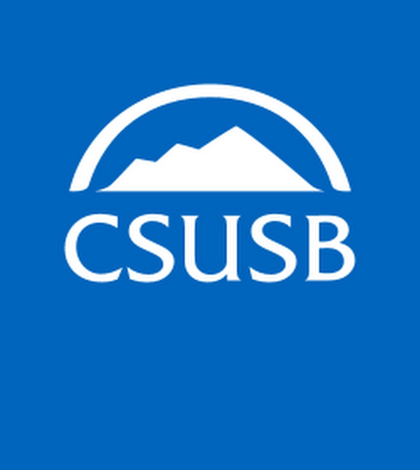The Institute of Applied Research and Policy Analysis conducts surveys, including its monthly assessment of local manufacturing, as well as forecasts, policy studies and statistical analyses, all related to the Inland Empire.
Back in 1985, three professors at Cal State San Bernardino got an idea.
All of them consulted for businesses and government agencies, a common practice in academia, said Barbara Sirotnik, a professor in the university’s School of Business and Public Administration.
Why not form a consulting service on campus, one that would gather information and provide it to public and private entities in the Inland Empire?
“We thought it would be a good thing for the community, especially the business community,” said Sirotnik, one of the three professors that started the Institute of Applied Research and Policy Analysis. “We wanted to give something back, but it also made sense from a practical standpoint. Since we were all consulting in one way or another, why not do it on campus?”
Not long after university officials approved the project, the institute conducted two economic studies, one for Copper Mountain College in Joshua Tree, the other for San Bernardino. More recently, the institute in 2015 conducted a survey for Riverside, Seizing Our Destiny, which solicited residents’ views on quality of life, fear of crime, business opportunities and cultural and entertainment needs, among other issues.
Thirty one years after its founding [the other co-founders were Shel Bockman, a sociology professor who died in 2013 and Donald Lindsey, a professor in the criminal justice department] the institute is a thriving operation. It generates about $250,000 in revenue annually and has put together as many as 17 studies or analyses on one year, although both of those numbers can go up or down depending on the economy.
Besides economic forecasts and studies, the institute – Sirotnik is its co-director – collects data for surveys and polls and conducts program evaluations, policy studies, marketing research and statistical analysis, according to the institute’s website.
All research is tailored to the clients, who are charged depending on the size of the project and the scope of the research they request. Most of the research is done by students, and some projects take two or three years to complete.
Since 1995, the institute has produced the Inland Empire Annual Survey, which takes a comprehensive look at various quality-of-life issues in San Bernardino County and sometimes Riverside County.
This year’s study, which was published in August, dealt exclusively with San Bernardino County. It found that residents there believe the economy is improving, and that it will continue to get better during the next year or so, but that it has not improved to pre-recession levels.
The institute might be best known for its purchasing manager’s index, a monthly assessment of manufacturing in Riverside and San Bernardino counties and whether the region’s manufacturers believe the economy is going to get better or worse during the next three months.
The local index, which is paid for by local business and media sponsors, is modeled after the national index, which is published every month by the Institute for Supply Management, a not-for-profit agency in Tempe, AZ.
“Someone thought it would be a good idea to put out a local index based on the national index, so we did,” Sirotnik said of the report, which is published on the first working day of the month.
The institute, which occupies office space in the Jack H. Brown College of Business and Public Administration, gets no financial help from the university. It uses revenue generated by its projects to pay its expenses and it has two full-time employees, Sirotnik and Lori Aldana, the institute’s project coordinator.
Despite having a somewhat low profile, the institute is a valuable asset to the Inland Empire business community, said Mike Stull, professor of entrepreneurship and director of the Inland Empire Center for Entrepreneurship at Cal State San Bernardino.
“I’ve always liked the fact that they do applied research for specific clients.,” Stull said. “They’re a very good thing to have, but I’m not sure enough businesses take advantage of it.”
 IE Business Daily Business news for the Inland Empire.
IE Business Daily Business news for the Inland Empire.


